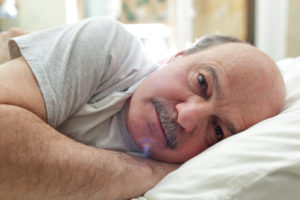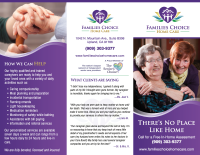As human beings age, they become more susceptible to sleep disorders. As such, elderly individuals must take precautions to ensure that they’re getting ample sleep on a nightly basis.
Are you or a loved one having trouble with sleep? Need help combating elderly sleep disorders? This article can help you.
Causes of Insomnia in Elderly Individuals
Elderly sleep disorders can be caused by a number of factors. We’ll review the most prominent of these factors below.
Sleep Apnea
One of the primary causes of sleep issues in the elderly is sleep apnea. Sleep apnea is a condition wherein the affected individual stops breathing momentarily during sleep. As a person grows older, he or she has a much greater chance of developing the condition.
Sleep apnea is a problem for a few reasons. Not only does it prevent sufferers from ever truly falling into a deep sleep but it also puts stress on the heart, increasing the risk of cardiovascular disease.
Restless Leg Syndrome
Another cause of sleep problems in the elderly is restless leg syndrome. This is a syndrome wherein the sufferer feels strange sensations in his or her legs, leading to feelings of restlessness. Believed to be caused by abnormal dopamine and iron levels, it often results in a lack of sleep.
While restless leg syndrome can affect anyone, it’s more prominent in the elderly than in any other age group. Note, this condition is often connected to depression, anxiety, and insomnia.
Periodic Limb Movement Disorder
One of the most puzzling causes of sleep issues is periodic limb movement disorder, a condition that’s more prominent in the elderly than it is in other age groups. Characterized by random movement of the legs during sleep, it can often wake a person up from his or her slumber.
There is much thought that this condition is related to other conditions, namely, sleep apnea and restless leg syndrome. That said, medical researchers aren’t quite sure of its cause.
Medication
While not all medications will lead to sleep problems, some will. And because elderly individuals take more medications than younger individuals, they are especially vulnerable to medication-induced sleep problems.
Medications to look out for include diuretics, antihypertensives, antidepressants, adrenergic drugs, and corticosteroids. Note, however, that these drugs can sometimes have the opposite effect, leading to increased drowsiness.
Unrelated Medical Issues
Another cause of sleep issues in the elderly is unrelated medical issues. These run the gamut from heart issues to lung issues to bone issues and more. Anything that causes pain or shortness of breath can make it difficult for a person to sleep.
Issues of the bladder can result in sleep deprivation as well. After all, if a person has to get up to go to the bathroom three times a night, he or she is going to miss out on substantial amounts of sleep.
There are also mental health issues to look out for. Depression, anxiety, and other such ailments can lead to insomnia. So too can bipolar disorder, schizophrenia, and the like.
Some specific diseases connected to sleep issues include Parkinson’s Disease, arthritis, Alzheimer’s Disease, and acid reflux, to name just a few.
Combatting Elderly Sleep Disorders
There is no one way to combat insomnia in the elderly. Treatment will vary on a person-by-person basis. That said, these are the most common treatment methods.
Utilize a CPAP Machine
If your insomnia is caused by sleep apnea, your best course of action would be to use a CPAP machine. A CPAP machine is a device that helps to keep the throat open during sleep, ensuring that the user never stops breathing.
To obtain a CPAP machine, you will have to undergo a sleep study. During this study, your doctor will assess whether or not you suffer from sleep apnea. If you do, you will almost certainly be prescribed a machine.
Undergo Psychological Therapy
If you don’t suffer from sleep apnea, you’re advised to first undergo psychological therapy. Why? Because there’s a very good chance that the state of your psyche is at the root of your sleep troubles.
One of the most popular therapies for combatting insomnia is CBT or cognitive behavioral therapy. This therapy targets the source of insomnia instead of attempting to treat its symptoms.
Establish a Routine
When it comes to good sleep, consistency is often key. As such, if you suffer from sleep insomnia, you need to establish a routine.
Not only do you need to try to go to sleep at the same time every night but you also need to establish a pre-sleep routine. For instance, you could read each night before laying down and closing your eyes.
A routine will help to stabilize the sleep cycle, ensuring that you’re actually tired when you go to rest your head at night.
Take Sleep Pills
If therapy and a routine won’t work, you can turn to sleep pills. These pills will alter the chemicals in your brain, helping you to get drowsy when the time is right. Some of the most popular sleep pills include Ambien, Halcion, and Melatonin, a natural sleep supplement.
Note, however, that sleep pills should be a final resort. It’s always best to treat the problem without medicine before turning to chemical means.
Need Help Sleeping at Night?
Elderly sleep disorders are common. But that doesn’t mean that seniors have to live with them. By utilizing the proper strategies, elderly individuals can get the sleep they need.
Need help getting to sleep at night? If so, you might consider utilizing the services of an in-home senior care specialist.
Looking for an in-home senior care specialist in Upland, California or the surrounding area? Families Choice Home Care can help.
Contact us today to discuss your needs.






